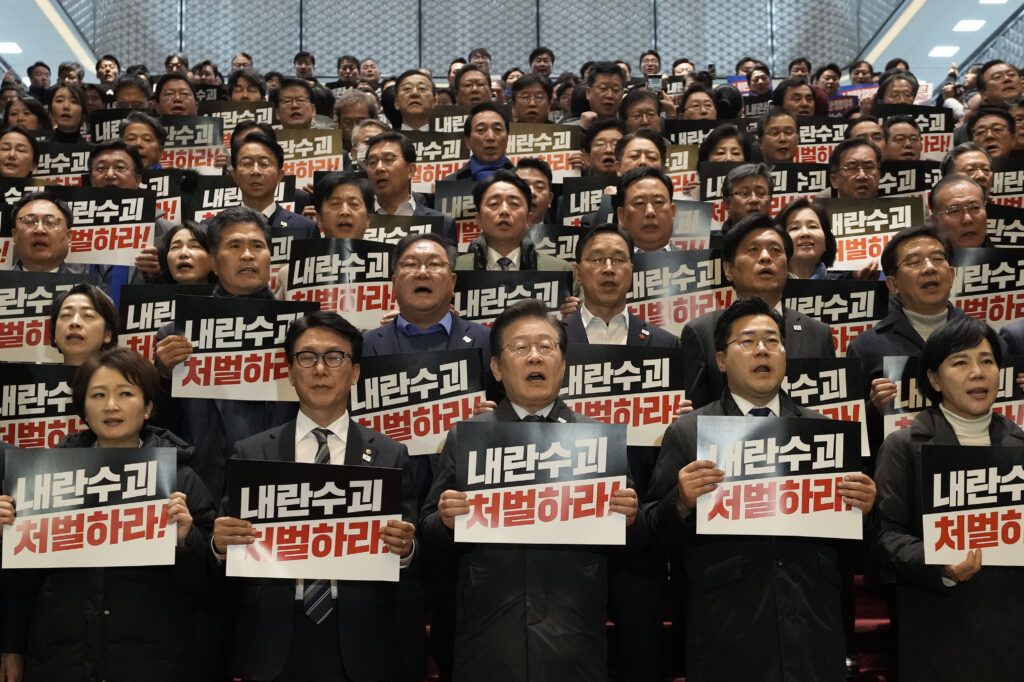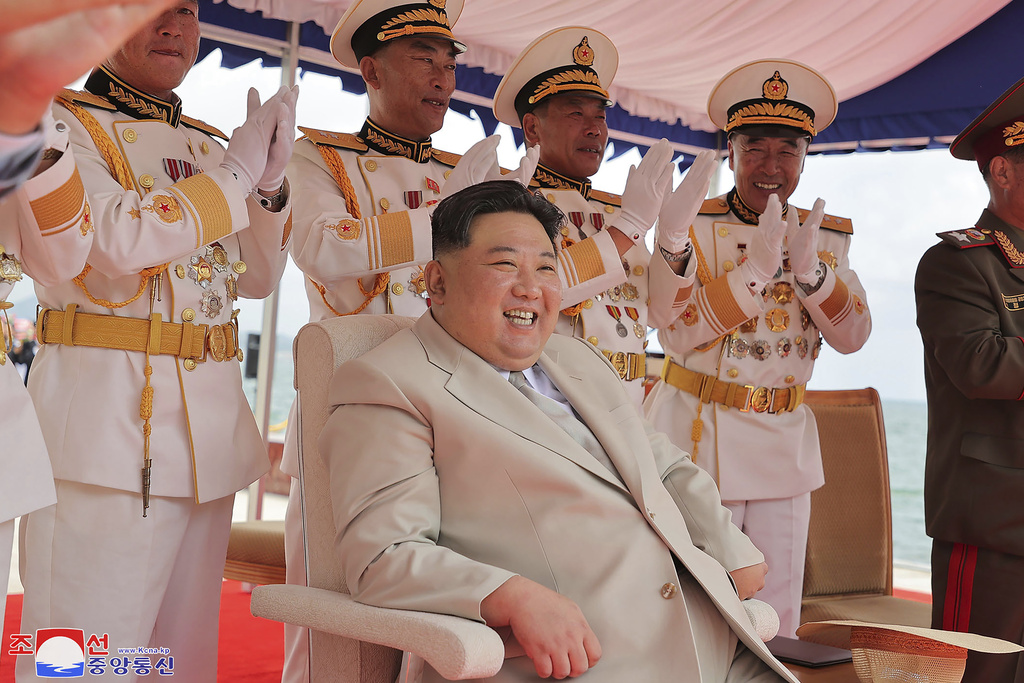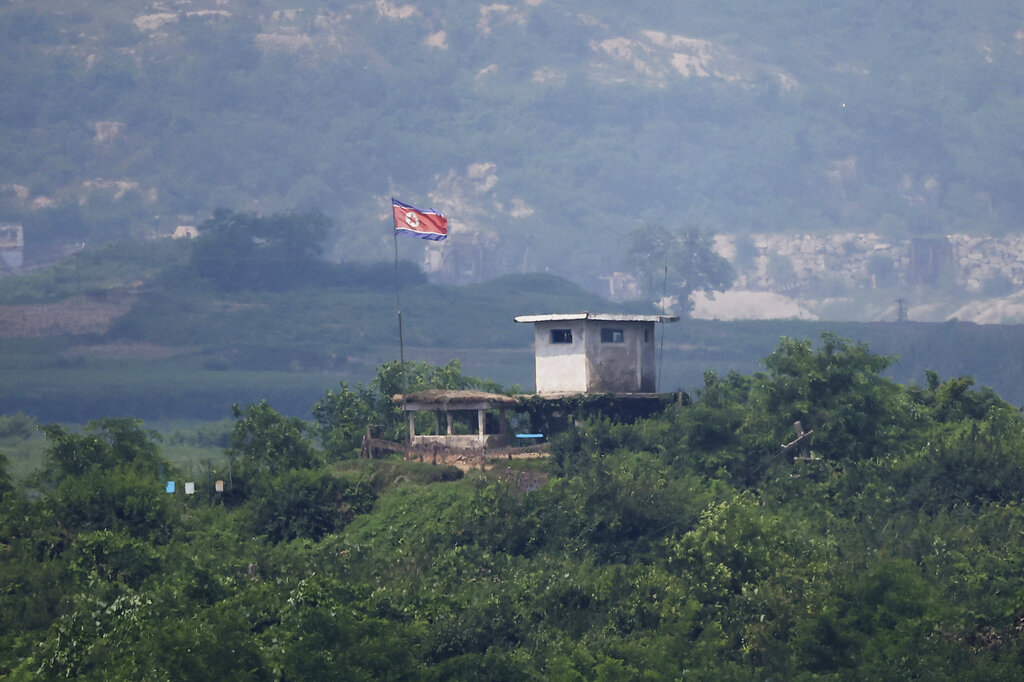Could America Lose South Korea to Communist China?
In the left’s upside-down worldview, Beijing is no longer seen as a threat — but as a model of post-Western order.

South Korea stands at a critical political crossroads. The impeachment of the pro-American conservative president, Yoon Suk-yeol, has triggered a snap presidential election on June 3, which will decide whether the country will continue its strategic alignment with the United States, or become Communist China’s satellite state.
South Korea is now locked in an ideological crisis. Postmodernism and cultural Marxism have penetrated the nation’s core institutions. These ideas have found political shelter within the leftist Democratic Party of Korea.
At the heart of this ideological subversion, there is a calculated revision of history. The South Korean left promotes the idea that the Republic of Korea was a betrayal, engineered by pro-Japanese collaborators and propped up by American imperialism.

This narrative assigns moral legitimacy to North Korea, portraying the regime as the “true Korea,” supposedly forged in resistance against foreign domination. Never mind Pyongyang’s record of tyranny, famine, and forced labor — the myth of anti-imperialist purity prevails.
These distorted narratives function as political weapons. By undermining the Republic’s moral foundation, they sow anti-Americanism and pave the way to sympathy toward Communist China. In this upside-down worldview, China is no longer seen as a threat — but as a model of post-Western order. That illusion is not only false — it is dangerous.
The leftist DPK presidential candidate, Lee Jae-myung, advocates for improving relations with China and criticized the “inequality” of the U.S.-South Korea alliance, making him a prominent pro-China politician. Lee advocates for “autonomous and balanced diplomacy centered on national interests.”
He even mentioned that, if elected, he would cancel the deployment of an advanced American anti-ballistic missile defense system and take wartime operational control of South Korean forces. Mr. Lee embraces a dangerous revisionist interpretation of Korean history — one that casts doubt on the very legitimacy of the Republic itself, absolves the violent legacy of communism, and promotes anti-American resentment.

The roots of this revisionist impulse run deep. Many within the DPK are not only ideological heirs of the South Korean Workers’ Party but are connected to it by lineage. President Roh Moo-hyun’s father-in-law, Kwon Oh-seok, was a lifelong unrepentant communist and political prisoner. These are not mere coincidences — they reflect a clear line of ideological continuity between Korea’s radical past and its contemporary political elite.
If America and its allies fail to recognize how historical narratives are being weaponized to undermine the moral foundation of free societies, they will forfeit critical ground — not only in Korea, but across the broader fight for truth in the Indo-Pacific.
The DPK’s embrace of revisionist history has translated into real-world deference to authoritarian regimes, most notably China. Under President Moon Jae-in, Seoul announced the “Three No’s” policy in 2017: no additional American ballistic missile deployments, no integration into an American-led missile defense system, and no trilateral military alliance with the United States and Japan. In effect, the policy conceded strategic leverage to Beijing.
The consequences have been more than symbolic. In late 2024, South Korea’s Board of Audit and Inspection uncovered evidence that sensitive details about the anti-ballistic missile deployment may have been leaked to China during Mr. Moon’s presidency. This revelation followed Mr. Moon’s 2017 pledge at Peking University to support China’s so-called “national dream” — a message that sent a clear signal of alignment rather than neutrality.

On the ground, the situation is even more alarming. Chinese nationals have repeatedly been caught photographing sensitive South Korean and American military installations – ranging from United States Navy assets at Busan to the headquarters of South Korea’s intelligence agency. Yet under current law, espionage is defined exclusively in relation to the “enemy state,” which is North Korea. Efforts to revise the law to include other hostile foreign actors were blocked — and notably, by the DPK.
As a result, those caught gathering intelligence for China face, at most, a fine or deportation. There is no real deterrent. Critics call it what it truly is: passive collusion.
Meanwhile, Chinese state-run outlets such as Global Times and CCTV fear the victory of conservative People Power Party’s presidential candidate Kim Moon-soo and portrayed instead the DPK presidential candidate, Mr. Lee, as a friendly and reliable figure in South Korean politics — coverage that, in China’s tightly controlled media environment, is rarely incidental.
If Washington ignores China’s influence in South Korea, it risks losing not just a partner — but the geopolitical anchor of democracy in Northeast Asia.
_______
This piece was adapted from a report published by the Middle East Media Research Institute.
